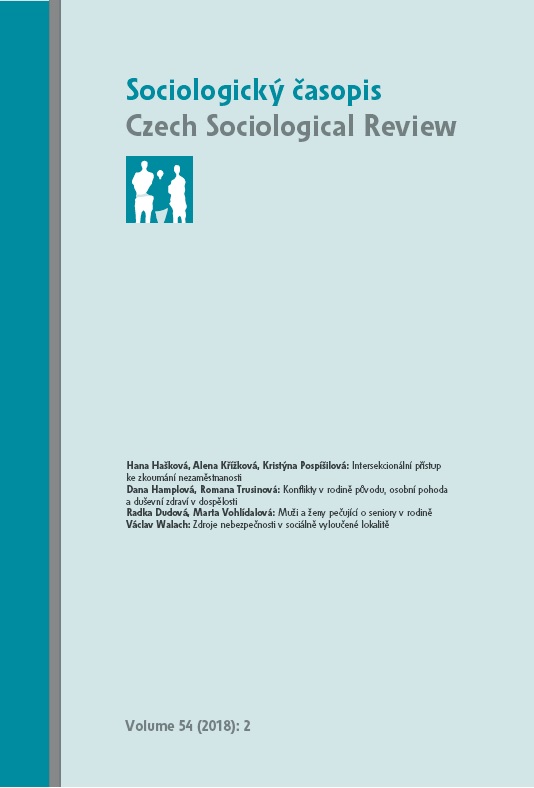Intersekcionální přístup ke zkoumání nezaměstnanosti
An Intersectional Approach to Research on Unemployment
Author(s): Hana Hašková, Alena Křížková, Kristýna PospíšilováSubject(s): Gender Studies, Social differentiation, Family and social welfare
Published by: AV ČR - Akademie věd České republiky - Sociologický ústav
Keywords: intersectionality; unemployment; inequalities; gender; logistic regression; interactions
Summary/Abstract: This article critically evaluates the use of an intergroup intersectional perspective in quantitative research on social inequalities and thereby helps to obtain deeper knowledge of the sources of inequality that impact chances of unemployment in the Czech Republic and contribute to the discussion of the benefits and limitations of using this approach. The advantage offered by the intersectional perspective is illustrated in an analysis of EU-SILC data. The analysis combines an additive and multiplicative (intersectional) approach to research on unemployment in the Czech Republic. An additive model of binary logistic regression is accompanied by binary logistic regression models with interactions. The aim is to identify the factors and the social positions that result from the interaction of these factors that together influence chances of unemployment. The analysis shows that one source of inequality in interaction with other sources can have an entirely different impact on chances of unemployment than individual factors have on their own. An example is the interaction of gender and parenthood, which creates different social positions for different subpopulations. Motherhood, fatherhood, and the absence of the need to care for a young child can generate specific (dis)advantages for women or men also depending on the nature of their employment.
Journal: Sociologický časopis / Czech Sociological Review
- Issue Year: 54/2018
- Issue No: 02
- Page Range: 171-197
- Page Count: 27
- Language: Czech

